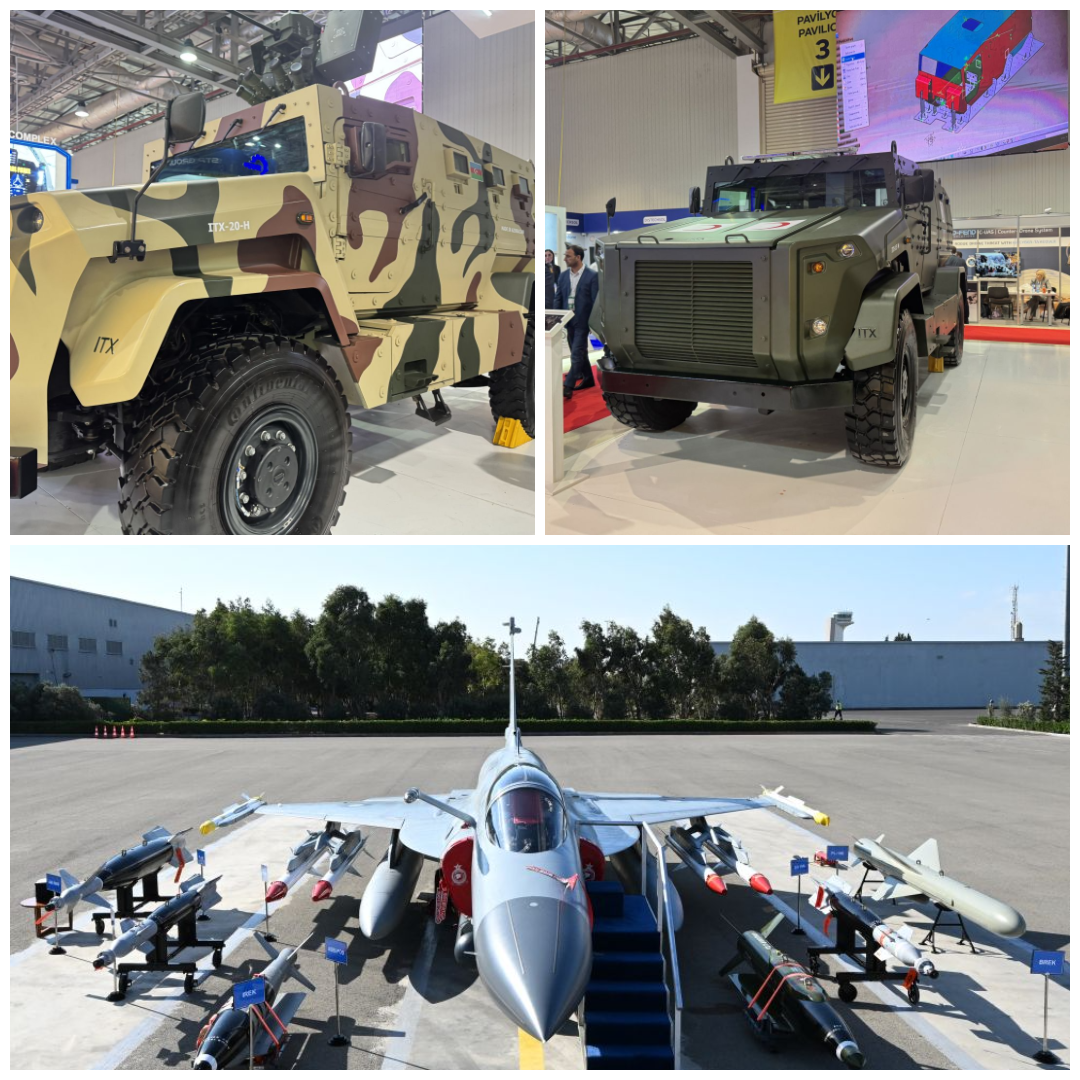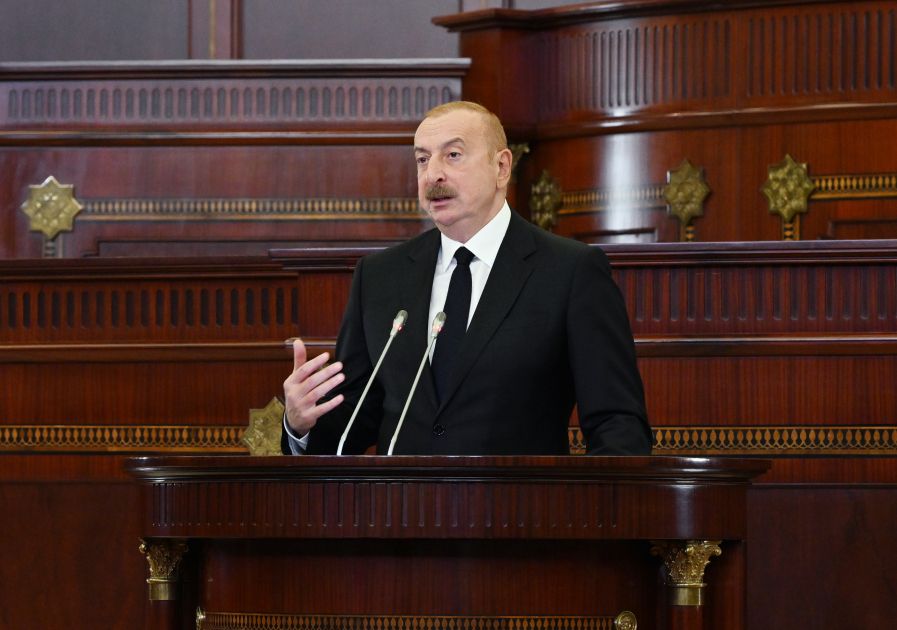Azerbaijan has emerged as a significant player in the global defense market, driven by increased military spending, strategic partnerships, and domestic innovation in recent years. The 5th Azerbaijan International Defense Exhibition (ADEX-2024) showcased the country’s achievements, with a marked emphasis on collaboration and a path forward on military self-sufficiency.
Historical Context
Before delving into the event for context, I would like to brief you about the historical background of the country’s defense industry. Over the past two decades, Azerbaijan has been engaged in a massive effort to modernize and upgrade its military. War with Armenia over the breakaway Garabagh region forced Baku to drastically ramp up military spending and invest vigorously in various military technologies. The Garabagh War forced Baku to drastically ramp up military spending and invest vigorously in various military technologies.
This conflict, combined with other challenges, such as establishing a centralized government post-independence and contending with external factors like the 907th amendment of the United States, significantly hindered the nation's development. These struggles made it difficult for Azerbaijan to establish national unity and pursue economic growth during its early years as an independent state. Despite these obstacles, Azerbaijan's drive to modernize its military has been a cornerstone of its national policy. Encouraged by a tremendous influx of oil revenues, Azerbaijan achieved a twentyfold increase in military spending over the past decade, laying the foundation for the development of a robust military-industrial base. The Ministry of Defense Industry (MDI), created in 2005, played a pivotal role in shaping Azerbaijan's defense capabilities. Between 2007 and 2016, Azerbaijani military production underwent a fortyfold expansion, transforming the country from a simple buyer of arms into a budding arms exporter.
The Republic of Azerbaijan has successfully established such relations with most of the world's countries and continues to develop them. The defense sector now supplies products to more than 10 countries, including Turkiye, Georgia, Pakistan, Jordan, Israel, and China. This rapid growth in military production and export has also been accompanied by a shift in Azerbaijan's partnerships with key defense players. Baku has moved away from a traditional "buyer-seller" relationship and towards co-development and co-manufacturing with its partners, signaling its growing technical and industrial self-reliance.
Expanding Partnerships and Strategic Cooperation
ADEX-2024 provided the platform for further agreements with defense giants such as Türkiye’s Aselsan, China Precision Machinery Import-Export Corporation, and Israel’s Elbit Systems. A notable agreement was signed between AS Holdings and Azersilah, focusing on the joint production of NATO-standard light weapons. This strategic memorandum strengthens ties between Azerbaijan and Israel, a key defense partner, and underscores Azerbaijan’s growing technical and manufacturing capabilities. While total domestic defense self-sufficiency might be unattainable for small and medium-sized states such as Azerbaijan, indigenous defense industrialization still has its own undeniable benefits. In this context, relations with Israel are particularly important for Azerbaijan.
Additionally, Azerbaijan’s first locally developed laser weapon, the Fireforce, was also introduced at ADEX-2024, demonstrating the country’s shift toward high-tech military innovations. Weighing 900 kilograms and boasting a power of 30 kilowatts, the "Fireforce" is mounted on a light-armored vehicle, offering a glimpse into the future of Azerbaijan's military technology.
New Generation of Armored Vehicles and UAVs
Beyond collaborations, Azerbaijan has made significant strides in indigenous defense innovation. At ADEX-2024, the ITX-15 and ITX-20 armored personnel carriers, developed domestically in 2024, were unveiled. The Tufan Mine-Resistant Ambush-Protected vehicle, which is preparing for serial production, further showcases the capabilities of Azerbaijan’s defense sector. These developments not only enhance the nation’s military but also position Azerbaijan as a growing arms exporter, with increasing demand for its products. In addition, the presentation of the Revival P and Revival T vehicles at ADEX 2024 reflects Improtex Industries' ambition to establish itself as a key player in the demining sector, both nationally and internationally. With their sturdy design, explosion resistance, and advanced technological features, these vehicles are expected to see increased proliferation, addressing the needs of numerous countries, particularly those affected by conflict, besides Azerbaijan.

And on the second day of the event, President Ilham Aliyev was presented with JF-17C (Block-III) multirole fighter jets at Heydar Aliyev International Airport. Developed as a joint venture between Pakistan Aeronautical Complex and Chengdu Aircraft Industry Corporation of China, these advanced, lightweight aircraft have been integrated into Azerbaijan's Air Force. The JF-17C is known for its air-to-air and air-to-ground capabilities, high maneuverability, and effectiveness in both day and night operations.
Military Power as the Main Guarantor of Security
In today's world, increasing defense spending has become a global trend, driven by the need for national security amid various geopolitical challenges. If global security and the international legal system do not function effectively, nations often feel compelled to bolster their military power. Azerbaijan's military buildup is partly a response to a tradition of embargoes, particularly from Western countries, which have imposed restrictions on arms sales and military technology transfers.

President Ilham Aliyev has previously emphasized the necessity of strengthening military capabilities, especially in light of the revanchist forces in Armenia. During the inaugural session of the Milli Majlis of the Republic of Azerbaijan's VII convocation, he remarked, "The countries standing behind Armenia, their activities, their decisions, resolutions, statements - all this shows that this dirty game against us is not over yet."
This indeed underscores the urgency for Azerbaijan to fortify its defense capabilities to ensure its sovereignty and security. In today's reality, the main guarantor of security is military power.
So what holds for the future?
By reducing dependency on foreign suppliers, Azerbaijan is positioning itself to meet the needs of its military domestically. The stage is set for Azerbaijan to further expand its defense sector, cementing its status as a key player in the region and beyond. To note, Azerbaijan has disclosed its planned defense and national security expenditures for 2025. According to the forecast, 6.66 billion manats ($3.92 billion) will be allocated for defense and national security, making up 16.8 percent of the state budget for 2025. One of Azerbaijan’s paths is towards building a self-reliant and collaborative defense sector.